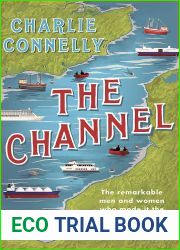
BOOKS - Shaping the Industrial Century: The Remarkable Story of the Evolution of the ...

Shaping the Industrial Century: The Remarkable Story of the Evolution of the Modern Chemical and Pharmaceutical Industries (Harvard Studies in Business History)
Author: Alfred D. Chandler Jr.
Year: April 30, 2004
Format: PDF
File size: PDF 796 KB
Language: English

Year: April 30, 2004
Format: PDF
File size: PDF 796 KB
Language: English

The book "Shaping the Industrial Century: The Remarkable Story of the Evolution of the Modern Chemical and Pharmaceutical Industries" by Alfred Chandler, Jr. , offers a comprehensive and detailed account of the evolution of the chemical and pharmaceutical industries over the past century. As the dean of business historians, Chandler masterfully chronicles the transformative revolutions of the twentieth century, highlighting the importance of research and development (R&D) and long-term corporate strategies for success. The book begins by examining the state of the chemical and pharmaceutical industries at the end of World War II, where new learning and technological advancements had transformed these sectors. Chandler explains how the commercialization of petrochemicals and antibiotics revolutionized these industries, leading to unprecedented growth and innovation. However, by the 1970s, chemical science was no longer providing the necessary new learnings to commercialize more products, and the industry began to stagnate. In the 1980s, major drug companies such as Eli Lilly, Merck, and Schering Plough successfully commercialized biotechnology products, marking a significant shift in the industry's direction. This biotechnology revolution was comparable in scale and impact to the second industrial revolution before World War I and the information revolution of the 1960s.
Книга «Shaping the Industrial Century: The Remarkable Story of the Evolution of the Modern Chemical and Pharmaceutical Industries» Альфреда Чендлера-младшего предлагает исчерпывающий и подробный отчет об эволюции химической и фармацевтической промышленности за последнее столетие. Будучи деканом историков бизнеса, Чендлер мастерски ведет хронику трансформационных революций ХХ века, подчеркивая важность исследований и разработок (R &D) и долгосрочных корпоративных стратегий для успеха. Книга начинается с изучения состояния химической и фармацевтической промышленности в конце Второй мировой войны, где новое обучение и технологические достижения преобразили эти сектора. Чендлер объясняет, как коммерциализация нефтехимии и антибиотиков произвела революцию в этих отраслях, что привело к беспрецедентному росту и инновациям. Однако к 1970-м годам химическая наука уже не давала необходимых новых знаний для коммерциализации большего количества продуктов, и отрасль начала стагнировать. В 1980-х годах крупные фармацевтические компании, такие как Eli Lilly, Merck и Schering Plough, успешно коммерциализировали биотехнологические продукты, что ознаменовало значительный сдвиг в направлении отрасли. Эта биотехнологическая революция была сравнима по масштабу и воздействию со второй промышленной революцией перед Первой мировой войной и информационной революцией 1960-х годов.
livre « Shaping the Industrial Century : The Remarkable Story of the Evolution of the Modern Chemical and Pharmaceutical Industries » d'Alfred Chandler, Jr., propose un rapport complet et détaillé sur l'évolution de l'industrie chimique et pharmaceutique au cours du siècle dernier. En tant que doyen des historiens des affaires, Chandler tient une chronique magistrale des révolutions transformationnelles du XXe siècle, soulignant l'importance de la recherche et du développement (R &D) et des stratégies d'entreprise à long terme pour réussir. livre commence par une étude de l'état de l'industrie chimique et pharmaceutique à la fin de la Seconde Guerre mondiale, où la nouvelle formation et les progrès technologiques ont transformé ces secteurs. Chandler explique comment la commercialisation de la pétrochimie et des antibiotiques a révolutionné ces industries, ce qui a entraîné une croissance et une innovation sans précédent. Cependant, dans les années 1970, la science chimique ne fournissait plus les nouvelles connaissances nécessaires pour commercialiser davantage de produits, et l'industrie a commencé à stagner. Dans les années 1980, de grandes entreprises pharmaceutiques comme Eli Lilly, Merck et Schering Plough ont commercialisé avec succès des produits biotechnologiques, ce qui a marqué un changement important dans la direction de l'industrie. Cette révolution de la biotechnologie était comparable à la deuxième révolution industrielle avant la Première Guerre mondiale et la révolution de l'information des années 1960.
libro «Shaping the Industrial Century: The Remarkable Story of the Evolution of the Modern Chemical and Pharmaceutical Industries» de Alfred Chandler Jr ofrece un informe exhaustivo y detallado sobre la evolución la industria química y farmacéutica durante el último siglo. Como decano de historiadores empresariales, Chandler lleva magistralmente una crónica de las revoluciones transformadoras del siglo XX, destacando la importancia de la investigación y el desarrollo (I + D) y las estrategias corporativas a largo plazo para el éxito. libro comienza con un estudio del estado de la industria química y farmacéutica al final de la Segunda Guerra Mundial, donde nuevos aprendizajes y avances tecnológicos transformaron estos sectores. Chandler explica cómo la comercialización de petroquímicos y antibióticos ha revolucionado estas industrias, dando lugar a un crecimiento e innovación sin precedentes. n embargo, para la década de 1970, la ciencia química ya no estaba dando los nuevos conocimientos necesarios para comercializar más productos, y la industria comenzó a estancarse. En la década de 1980, grandes compañías farmacéuticas como Eli Lilly, Merck y Schering Plough comercializaron con éxito productos biotecnológicos, lo que marcó un cambio significativo hacia la industria. Esta revolución biotecnológica fue comparable en escala e impacto a la segunda revolución industrial antes de la Primera Guerra Mundial y la revolución de la información de los 60.
Il libro «Shaping the Industrial Century: The Remarkable Story of the Evolution of the Modern Chemical and Farmaceutic Industries» di Alfred Chandler Jr offre un rapporto completo e dettagliato sull'evoluzione dell'industria chimica e farmaceutica nell'ultimo secolo. In qualità di decano degli storici del business, Chandler guida con abilità la cronaca delle rivoluzioni trasformistiche del XX secolo, sottolineando l'importanza della ricerca e dello sviluppo (R &D) e delle strategie aziendali a lungo termine per il successo. Il libro inizia con uno studio dello stato dell'industria chimica e farmaceutica alla fine della seconda guerra mondiale, dove la nuova formazione e i progressi tecnologici hanno trasformato questi settori. Chandler spiega come la commercializzazione di petrolchimici e antibiotici abbia rivoluzionato questi settori, portando a una crescita e un'innovazione senza precedenti. Negli annì 70, però, la scienza chimica non forniva più le conoscenze necessarie per commercializzare più prodotti, e il settore iniziava a stagnare. Negli annì 80, grandi aziende farmaceutiche come Eli Lilly, Merck e Schering Plough hanno commercializzato con successo i prodotti biotecnologici, segnando un significativo cambiamento verso il settore. Questa rivoluzione biotecnologica è stata paragonabile alla portata e all'impatto della seconda rivoluzione industriale prima della prima guerra mondiale e della rivoluzione dell'informazione degli annì 60.
Das Buch „Shaping the Industrial Century: The Remarkable Story of the Evolution of the Modern Chemical and Pharmaceutical Industries“ von Alfred Chandler Jr. bietet einen umfassenden und detaillierten Bericht über die Entwicklung der chemischen und pharmazeutischen Industrie im letzten Jahrhundert. Als Dekan der Wirtschaftshistoriker zeichnet Chandler meisterhaft die transformativen Revolutionen des 20. Jahrhunderts nach und betont die Bedeutung von Forschung und Entwicklung (F &E) und langfristigen Unternehmensstrategien für den Erfolg. Das Buch beginnt mit einer Untersuchung des Zustands der chemischen und pharmazeutischen Industrie am Ende des Zweiten Weltkriegs, wo neue Schulungen und technologische Fortschritte diese Sektoren veränderten. Chandler erklärt, wie die Kommerzialisierung von Petrochemie und Antibiotika diese Industrien revolutioniert hat, was zu beispiellosem Wachstum und Innovation geführt hat. In den 1970er Jahren lieferte die chemische Wissenschaft jedoch nicht mehr das notwendige neue Wissen, um mehr Produkte zu kommerzialisieren, und die Industrie begann zu stagnieren. In den 1980er Jahren haben große Pharmaunternehmen wie Eli Lilly, Merck und Schering Plough biotechnologische Produkte erfolgreich kommerzialisiert, was einen bedeutenden Wandel in der Richtung der Branche bedeutete. Diese biotechnologische Revolution war in Umfang und Wirkung vergleichbar mit der zweiten industriellen Revolution vor dem Ersten Weltkrieg und der Informationsrevolution der 1960er Jahre.
''
Alfred Chandler Jr.'ın eserleri Shaping the Industrial Century: The Remarkable Story of the Evolution of the Modern Chemical and Pharmaceutical Industries (Endüstriyel Yüzyılı Şekillendirmek: Modern Kimya ve İlaç Endüstrilerinin Evriminin Olağanüstü Öyküsü), kimya ve ilaç endüstrilerinin geçtiğimiz yüzyıldaki evriminin kapsamlı ve ayrıntılı bir açıklamasını sunmaktadır. İş tarihçilerinin dekanı olarak Chandler, 20. yüzyılın dönüşümsel devrimlerini ustalıkla anlatıyor, araştırma ve geliştirme (Ar-Ge) ve başarı için uzun vadeli kurumsal stratejilerin önemini vurguluyor. Kitap, yeni eğitim ve teknolojik gelişmelerin bu sektörleri dönüştürdüğü II. Dünya Savaşı'nın sonunda kimya ve ilaç endüstrilerinin durumunu inceleyerek başlıyor. Chandler, petrokimyasalların ve antibiyotiklerin ticarileştirilmesinin bu endüstrilerde nasıl devrim yarattığını ve benzeri görülmemiş bir büyüme ve yeniliğe yol açtığını açıklıyor. Bununla birlikte, 1970'lerde kimya bilimi artık daha fazla ürünü ticarileştirmek için gerekli yeni bilgileri sağlamadı ve endüstri durgunlaşmaya başladı. 1980'lerde Eli Lilly, Merck ve Schering Plough gibi büyük ilaç şirketleri, biyoteknoloji ürünlerini başarılı bir şekilde ticarileştirerek endüstri yönünde önemli bir değişime işaret etti. Bu biyoteknoloji devrimi, I. Dünya Savaşı'ndan önceki ikinci sanayi devrimi ve 1960'ların bilgi devrimi ile ölçek ve etki bakımından karşılaştırılabilirdi.
ألفريد تشاندلر جونيور يقدم تشكيل القرن الصناعي: القصة الرائعة لتطور الصناعات الكيميائية والصيدلانية الحديثة وصفًا شاملاً ومفصلاً لتطور الصناعات الكيميائية والصيدلانية على مدار القرن الماضي. بصفته عميدًا لمؤرخي الأعمال، يؤرخ تشاندلر ببراعة الثورات التحويلية في القرن العشرين، مؤكدًا على أهمية البحث والتطوير (R &D) واستراتيجيات الشركات طويلة الأجل للنجاح. يبدأ الكتاب بفحص حالة الصناعات الكيميائية والصيدلانية في نهاية الحرب العالمية الثانية، حيث أدى التدريب الجديد والتقدم التكنولوجي إلى تغيير هذه القطاعات. يشرح تشاندلر كيف أحدث تسويق البتروكيماويات والمضادات الحيوية ثورة في هذه الصناعات، مما أدى إلى نمو وابتكار غير مسبوقين. ومع ذلك، بحلول السبعينيات، لم تعد العلوم الكيميائية توفر المعرفة الجديدة اللازمة لتسويق المزيد من المنتجات، وبدأت الصناعة في الركود. في الثمانينيات، نجحت شركات الأدوية الكبرى مثل Eli Lilly و Merck و Schering Plow في تسويق منتجات التكنولوجيا الحيوية، مما يمثل تحولًا كبيرًا في اتجاه الصناعة. كانت ثورة التكنولوجيا الحيوية هذه قابلة للمقارنة من حيث الحجم والتأثير مع الثورة الصناعية الثانية قبل الحرب العالمية الأولى وثورة المعلومات في الستينيات.

















































